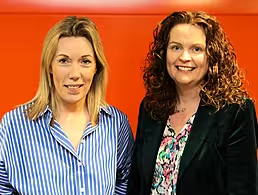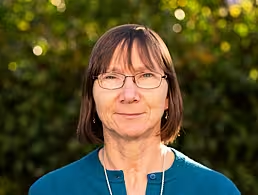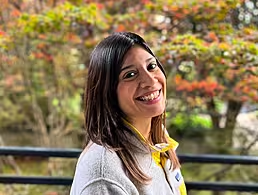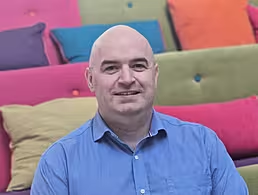Fidelity Investments’ Aparna Pandey discusses imposter syndrome, tracking your progress and learning on the job.
Coming from a family of engineers, software developer at Fidelity Investments Aparna Pandey has always been drawn towards activities that require some form of logic or creativity.
During her school years, Pandey was thrilled to find that the curriculum offered computer science as a core subject. “On learning about how this field is always changing and requires continuously learning new languages, tools and technologies, while giving you the opportunity to work in diverse areas, I knew this would be a good fit for me,” she said.
Pandey completed a bachelor’s degree in computer science and information technology at the University of Galway. During her college years, she was involved in the computer science club and participated in several hackathons.
Her first encounter with Fidelity Investments was as a technology intern for her college placement. “This experience exposed me to industry practices and emphasised the importance of testing and quality, which is something I still apply in my current role.” After she completed her degree, she joined the Fidelity LEAP graduate programme.
Here, Pandey talks about overcoming nervousness, identifying areas for improvement and some of the challenges she has faced in her career.
What were the biggest surprises or challenges you encountered on your career path and how did you deal with them?
I finished the graduate programme during the pandemic and joined my new team. Initially I struggled with imposter syndrome. Even though I got to know the company’s technologies I often second-guessed my work and wasn’t very active in group settings. To get past this, I started regular check-in meetings with my technical leads and reached out to former mentors and alumni in the company. This helped me to create a technical and professional skills roadmap that I still regularly use. It’s also a valuable reference to review at the end of each year to track my progress and identify areas for further development.
Was there any one person who was particularly influential as your career developed?
Throughout my time with the company, the technical leads on my team have played a key role in my overall development. Not only have they helped me better understand the technologies I work with day to day, but they have also been very supportive and have provided useful, constructive feedback. As a graduate with only a few years of experience in this field, gaining insight into industry trends and learning from their experiences has been extremely beneficial.
What do you enjoy about your job?
Over the past three years I’ve worked on a few different projects across two teams, collaborating with colleagues from all over the world. I’ve been lucky to be part of supportive teams that have encouraged me to try out new programming languages and tools as well as taking on new tasks. Receiving constructive feedback and discussing different approaches to solving complex problems with my team has helped me become a better developer.
Apart from my regular work, I’ve been encouraged to step out of my comfort zone by presenting at developer forums, pursuing certifications and competing in hackathons. I’ve also had the opportunity to mentor interns and new graduates. Outside of work, I enjoy events held in the company, like cultural celebrations, tech talks and alumni connections. It’s a nice change of pace and has helped with my overall experience here.
What aspects of your personality do you feel make you suited to this job?
I believe my curiosity and adaptability have made me suited to this career. As a full-stack developer I might need to work on different areas of the technical stack and on different tasks such as feature development, debugging and testing, or infrastructure setup. This also means collaborating with teams in various locations and learning the financial concepts related to my work. My passion for learning new things has been really helpful too.
What advice would you give to those considering a career in this area, or just starting out in one?
My advice to anyone who is currently in school or college is to start working on small personal projects outside of your coursework. It’s a good way to apply the technologies you may work with in the future. Starting a new role with little to no experience in the field can be daunting, so it’s a good idea to look for companies that offer graduate programmes. I personally think that these programmes are excellent for building a network and help with learning about a company’s culture. Once you’re in, I would recommend finding a mentor or a buddy as their advice can be very helpful early on in your career.
Don’t miss out on the knowledge you need to succeed. Sign up for the Daily Brief, Silicon Republic’s digest of need-to-know sci-tech news.




